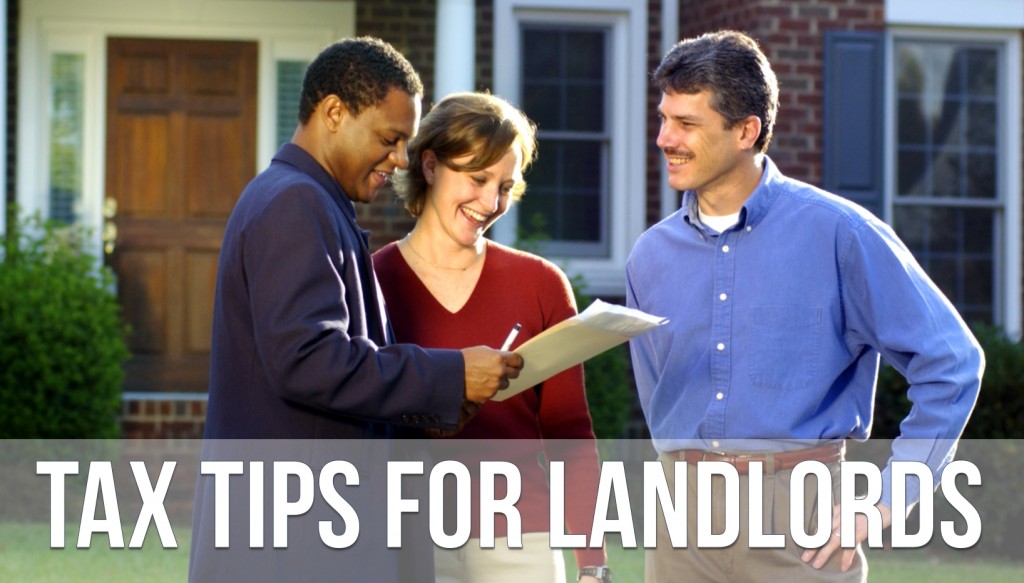
If you have decided to dive into the sharing economy by renting your home or part of it out — whether it’s through a service like AirBnB or independently — you need to be aware of how the rental income will affect your taxes.
Renting any part of your home requires some work up-front and ongoing management. You have several tasks ahead of you. You’ll most likely want to spruce up the place with comfy furnishings and linens, and maybe a fresh coat of paint. You’ll also need to check the legal regulations for renting in your local area. You may discover there are limitations on the type of rentals you can offer, be they short-term or long-term.
And then, there’s landlord tax. Running afoul of the IRS can potentially wipe out any financial gains you may reap from renting your home – be sure to abide by the laws of landlord tax. Fortunately, you can reduce your potential tax bite with diligent record-keeping. Here’s everything you need to know about renting out a room and applicable taxes.
The 14-Day Rule & Paying Rental Income Taxes
The most convenient and potentially lucrative scenario would be to completely avoid reporting or paying rental income taxes on what you earn from renting out your home or a spare room. Well, you can, IF you meet two relatively easy requirements set by the IRS.
First, you must use the residence as a home at least 14 days out of each calendar year. Second, you must limit the time that you rent any part of the residence that you use as a home to 14 days or less each tax year. That’s it.
So if you have a primary residence plus a vacation home where you spend at least two weeks of the same year, you could rent out rooms in both and collect rental revenue for 28 days (14 days for each residence) completely tax-free. It gets better: the IRS places no upper limit on how much income you earn as long as you don’t exceed 14 total days of rental per property. (IRS.gov)
If you live near the town where the All-Star game for a major sport is being played that year, you could rent out one room or the entire place for the week, rake in major cash, and never report a dime on your tax return. Pretty sweet. But, if a renter burns a hole in your floor, you’re stuck paying for the repairs.
Rent Your Home for More Than 14 Days?
Should you exceed the 14-day threshold, things become a bit more complicated. First, you must determine whether you or family members will reside in the residence or use it for personal purposes for at least 10% of the time that you rent at a fair rental price. You don’t have to be there at the same time you’re renting, but your time in the residence must equal at least 10% of the total rental time. So if you rent out your vacation home for 300 days each year, you or another qualifying person will need to live there for at least 30 days during the same year for the IRS to qualify the residence as a home. For the purposes of this article, the assumption will be that the residence qualifies as a home for IRS purposes. (IRS.gov)
The rules differ for rental properties that are used for what the IRS calls “personal purposes” rather than as residences. There are also different regulations that apply if you use the rental property as a residence, but don’t live there enough of the time for the residence to qualify as a home. To sort out those types of issues, consult with a professional such as a tax attorney from Optima Tax Relief.
Which IRS Form Do You Need to File Rental Income?
As a contractor with AirBnB living within the U.S., you would complete Form W-9, Request for Taxpayer Identification Number and Certification. You would also receive Form 1099, Miscellaneous Income before you file your federal income tax return for the following year. (International contractors need to complete different forms.) If you operate as an independent, you will need to maintain your own records for rental income and expenses, preferably separate from your personal household expenses.
If you provide sleeping space, but no frills, report income and losses on Schedule E, Supplemental Income and Loss, attached to Form 1040, Form 1040NR or Form 1041. If you splash out on fluffy towels, turn-down service, and catered breakfast in bed for your guests, report income and expenses through Schedule C, Profit or Loss from Business, also filed with Form 1040, Form 1040NR or Form 1041.
In either case, you are also allowed to deduct the costs of repairs, depreciation (by filing Form 4562, Depreciation and Amortization), uncollected rents and actual operating expenses. But if a renter trashes the place and you file Schedule E, you will also need to complete Form 6198, At-Risk Limitations or Form 8582, Passive Activity Loss Limitations. If you’re not sure which form you should complete, consulting a tax professional is your best strategy.
Fair Rental Prices and How They’re Calculated
If you live in the heart of Manhattan or in a condo overlooking Lake Michigan in Chicago, you might think that setting your rents at bargain basement levels will help you beat the competition. If you set your prices too low, you may well attract the unfavorable attention of the IRS.
That doesn’t mean that you must charge exactly what every other landlord or private renter in your area charges for rent. It does mean that you must set prices for your rental that are comparable to the going rent for similar properties in your area – what the IRS calls “fair rental price.”
If you fail to charge fair rental prices or if you never report a profit from your rental, the IRS may decide that you’re not serious about making money. You don’t have to show a profit every year, but the IRS assumes that you have a genuine profit-making motive if you show gains during at least three of the most recent five years, including the current year. (IRS.gov)
The Hobby Loss Rule
If you fail to show profit, you could be hit by the so-called “hobby loss rule,” which prevents you from using losses related from your venture to offset other income on your federal tax return. Instead, you use most losses related to your rental activities as itemized deductions on Schedule A. Deductions would be limited to the following strict limitations.
- Deductions such as mortgage interest and taxes are allowed in full
- Deductions like advertising, insurance, and premiums are allowed only to the extent that gross income exceeds deductions from the first category
- Deductions such as depreciation and amortization are allowed only to the extent that gross income exceeds the amount of deductions taken for both of the prior two categories.
How the Sharing Economy Works
Knowing the ins and outs of renting your home and taxes can be tricky. However, this article is not intended to discourage you from renting out your home, being a live-in landlord, or otherwise participating in the sharing economy. It’s a potentially exciting way to meet interesting people from all over the country or even other parts of the world.
But just as you want your house or apartment to look its best, you’ll also want your financial house to be in order, too. That way you can concentrate on being the best host you can be, without being hit with unpleasant surprises at tax time.
Need some help with landlord tax? Consult one of our tax professionals to learn more about renting out a room and taxes.
